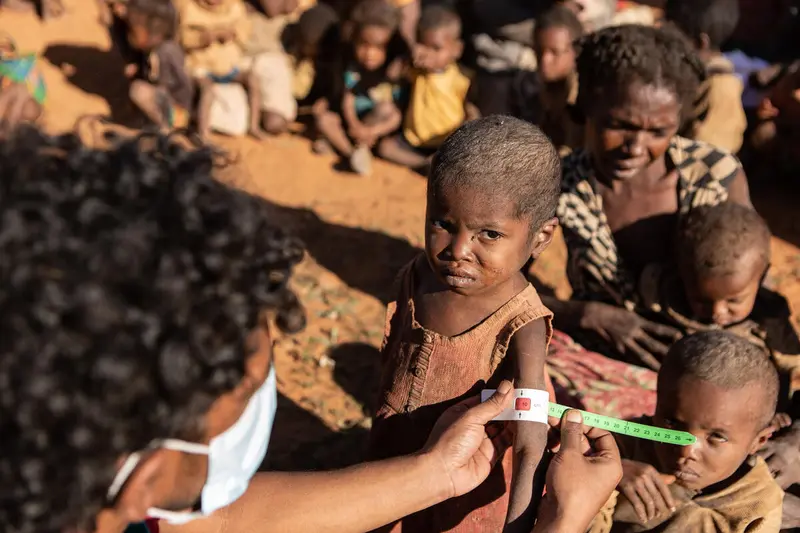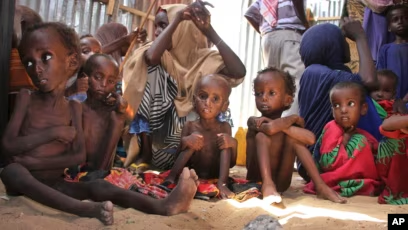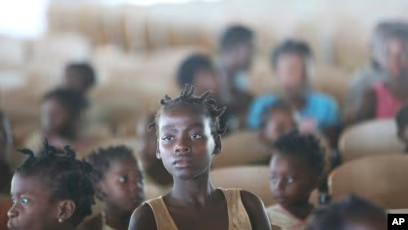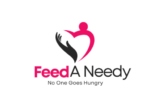Empowering Mozambique’s Future: A Manifesto for Helping Children

Mozambique, a nation rich in culture and natural beauty, faces significant challenges, particularly when it comes to the wellbeing of its children. Despite its potential, many children in Mozambique grapple with poverty, malnutrition, and limited access to education and healthcare. Our manifesto outlines a dedicated approach to transforming the lives of these children and empowering them to build a brighter future for themselves and their communities.
Understanding the Challenge
Mozambique, located in southeastern Africa, is one of the world’s least developed countries. The nation has made strides in recent years, but it continues to face substantial hurdles. With over 60% of the population living below the poverty line, many children grow up in environments where basic needs are not met. According to UNICEF, a significant proportion of Mozambican children suffer from chronic malnutrition, affecting their physical and cognitive development. Additionally, the education system, though improving, still struggles to provide quality education to all children, particularly in rural areas.
In a country where nearly half of the population is under 15, the stakes are high. These children represent both the present and future of Mozambique, and ensuring their health, education, and overall wellbeing is crucial for the nation’s progress. It is our collective responsibility to address these challenges with compassion, innovation, and a commitment to sustainable solutions.

Our Vision
Our vision is a Mozambique where every child has the opportunity to thrive. We aim to create an environment where children are nourished, educated, and empowered to reach their full potential. By focusing on the following key areas, we believe we can make a lasting impact:
- Ending Child Hunger and Malnutrition
Hunger and malnutrition are among the most pressing issues facing children in Mozambique. Malnutrition affects over 43% of children under five, leading to stunted growth, impaired cognitive development, and increased susceptibility to disease. To address this, we propose a multi-faceted approach:
- Nutritional Support: Establish community-based feeding programs that provide regular, balanced meals to children in need. Collaborate with local farmers and organizations to source nutritious, locally-grown food and ensure its distribution to the most vulnerable families.
- Education and Awareness: Launch initiatives to educate families about proper nutrition and healthy eating practices. Implement cooking classes and workshops to teach parents how to prepare nutritious meals from available resources.
- Partnerships: Work with international aid organizations, government agencies, and local NGOs to strengthen food security and support sustainable agriculture projects.
- Enhancing Access to Quality Education
Education is a powerful tool for breaking the cycle of poverty. In Mozambique, many children face barriers to accessing quality education, such as inadequate facilities, lack of trained teachers, and financial constraints. Our approach includes:
- Building and Renovating Schools: Support the construction and renovation of schools, especially in rural areas, to provide safe and conducive learning environments. Equip schools with essential resources, such as textbooks, technology, and learning materials.
- Teacher Training: Invest in professional development programs for teachers to improve their skills and teaching methods. Provide ongoing support and resources to help educators create engaging and effective learning experiences.
- Scholarships and Support: Offer scholarships and financial assistance to help children from low-income families attend school. Implement programs that provide school supplies, uniforms, and other necessities.
- Improving Healthcare and Child Protection
Health and safety are fundamental to a child’s ability to learn and grow. In Mozambique, children face numerous health challenges, including high rates of malaria, respiratory infections, and limited access to healthcare services. Our strategy involves:
- Healthcare Access: Increase access to healthcare services by supporting the construction of health clinics and mobile health units in underserved areas. Provide regular health check-ups, vaccinations, and treatments for common illnesses.
- Health Education: Promote health education programs that teach children and their families about hygiene, disease prevention, and healthy practices. Partner with local health workers to deliver these programs in schools and communities.
- Child Protection: Advocate for and support initiatives that protect children from abuse, exploitation, and neglect. Collaborate with local authorities and organizations to strengthen child protection systems and ensure safe environments for all children.
- Fostering Community Involvement and Empowerment
Sustainable change requires the involvement of local communities. Empowering communities to take ownership of their development is crucial for creating lasting impact. Our approach includes:
- Community Engagement: Involve community members in planning and implementing programs to ensure they meet local needs and priorities. Create opportunities for community members to contribute their skills, knowledge, and resources.
- Capacity Building: Invest in training and capacity-building initiatives that enable local organizations and leaders to effectively address the challenges facing children. Support grassroots efforts and foster collaboration between local and international actors.
- Advocacy and Awareness: Raise awareness about the issues facing children in Mozambique and advocate for policies and practices that support their rights and wellbeing. Engage with policymakers, media, and the public to generate support and drive change.

Our Commitment
Our commitment is to approach this mission with integrity, transparency, and a focus on results. We recognize that transforming the lives of children in Mozambique requires a sustained effort and a willingness to adapt and innovate. Our strategies are grounded in respect for local cultures and traditions, and we are dedicated to working in partnership with Mozambican communities to achieve our goals.
We pledge to:
- Act with Transparency: Maintain transparency in our operations and finances, providing regular updates on our progress and the impact of our initiatives. Build trust with our supporters and stakeholders by being open and accountable.
- Measure Impact: Implement robust monitoring and evaluation systems to assess the effectiveness of our programs and make data-driven decisions. Use feedback and lessons learned to continuously improve our efforts and outcomes.
- Foster Collaboration: Collaborate with a wide range of partners, including government agencies, NGOs, community groups, and donors. Leverage collective expertise and resources to maximize our impact and achieve shared goals.
Call to Action
The future of Mozambique rests in the hands of its children, and we have the power to shape that future through our actions today. We call upon individuals, organizations, and governments to join us in this vital mission. Whether through financial support, volunteering, or spreading awareness, every contribution makes a difference.
Together, we can create a world where every child in Mozambique has the opportunity to thrive. Let us embrace this challenge with hope, determination, and a commitment to making a lasting impact. The time to act is now. Let’s work together to build a brighter future for the children of Mozambique and ensure that they grow up with the health, education, and opportunities they deserve.
